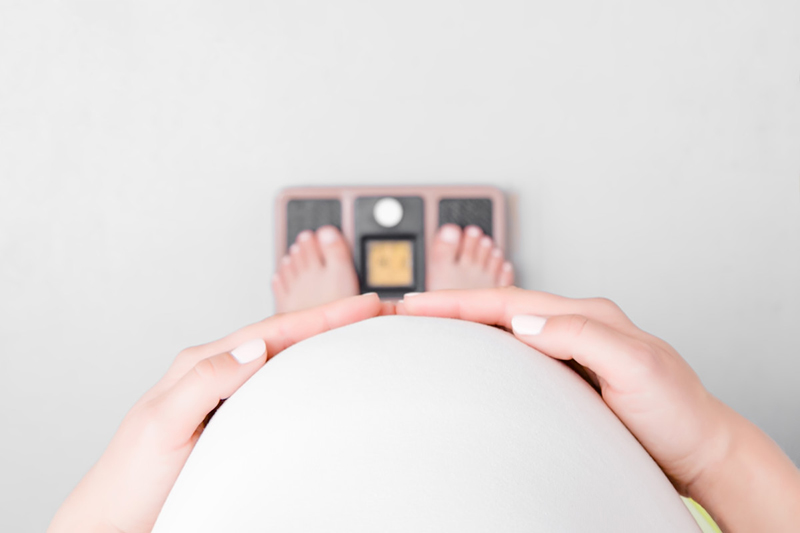
Women with asthma are more likely than normal to gain weight during pregnancy and to retain weight 3 months after giving birth, suggests a National Institutes of Health study. On average, women with asthma gained 3.1 kg (just under 7 lbs) more after a full-term pregnancy than women without asthma. Among women with asthma, weight gain was greater with obesity. Weight gain was also greater with more severe asthma and with asthma triggered by exercise. The study authors suggest that their findings underscore the importance of pre-pregnancy counseling for women with asthma on the need to achieve and maintain a healthy body weight.
The research team was led by Danielle R. Stevens, Ph.D., a postdoctoral fellow in the Epidemiology Branch of NIH’s Eunice Kennedy Shriver National Institute of Child Health and Human Development. The study appears in The American Journal of Epidemiology.
Background
Previous studies have indicated that there may be an association between asthma and a higher risk of weight gain in the general population, especially among children.
The researchers sought to determine if there also may be an association between asthma and weight gain during pregnancy. Excessive weight gain during pregnancy increases the risk for infants who are large for their gestational age, which increases the risk of injury during delivery, such as a broken collar bone and damage to the nerves in the arm. Large for gestational age infants also are at higher risk for breathing problems and low blood sugar. Adults who were large for their gestational age are at higher risk for obesity and asthma. Women who retain extra weight gained during pregnancy are at higher risk for cardiovascular disease later in life.
The study compared 299 women with asthma to 101 women without asthma in early pregnancy. The researchers collected weight, asthma status, and other information on the women during their pregnancies and in the months after pregnancy.
Results
After 40 weeks of pregnancy, women with asthma gained an average of 16.2 kg (almost 36 lbs) compared to 13.1 kg (almost 29 pounds) for women without asthma. Among women with a body mass index of 30 or more, women with asthma gained 5.6 kg (slightly over 12 lbs) more than women without asthma. Body mass index is a measure of body fat based on weight and height.
Weight gain also varied according to asthma severity. Women taking 2 daily asthma medications gained 2.6 kg (almost 6 lbs) more than women who took asthma medications only periodically, as needed. Women with asthma triggered by exercise gained 2.2 kg (almost 5 lbs) more than women without asthma.
Women with asthma also retained more weight 3 months after pregnancy than women without asthma: 10.4 kg versus 8.0 kg, a difference of slightly more than 5 lbs.
The study was not designed to prove whether asthma during pregnancy causes weight gain. Potential explanations for the increased weight during pregnancy include reduced physical activity, disturbances in sleep, medication use, and inflammation. The authors called for additional research to determine the potential influence of these and other lifestyle factors on asthma-associated weight gain in pregnancy.
Significance
The authors said their findings suggest that pre-pregnancy counseling on achieving and maintaining a healthy body weight may be especially important for women with asthma.
Next Steps
Given that asthma is common among women of child-bearing age, the authors called for more research on the possible association of asthma with weight gain during pregnancy, its potential causes, and ways to prevent it.
Reference
Stevens, DR, et al. Gestational and postpartum weight trajectories among women with and without asthma. American Journal of Epidemiology. 2020.

 BACK TO TOP
BACK TO TOP